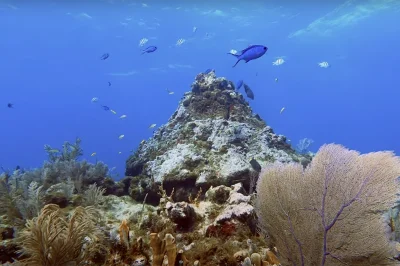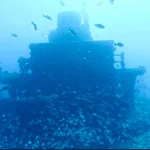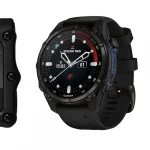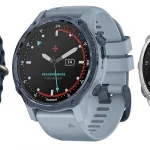Unpacking Convenience: Why Dive Gear Delivery is a Game Changer

Table of Contents
- Unpacking Convenience: Why Dive Gear Delivery is a Game Changer
- The Evolution of Dive Services in Key West
- Avoid Common Dive Trip Hassles with Hotel Gear Drop-off
- Key West Dive Options: Hotel Delivery’s Role in Safe Diving
- Myth-Busting: Is Dive Gear Delivery Cost-Efficient?
- Comparison: Dive Gear Delivery vs Traditional Rental Shops
- Technological Advancements in Dive Gear Delivery
- Local Dive Expertise Meets Global Convenience
Introduction
Discover how hotel-ready dive gear delivery in Key West offers ultimate convenience and efficiency, allowing divers to focus more on their underwater adventures and less on logistics.
Unpacking Convenience: Why Dive Gear Delivery is a Game Changer
The Evolution of Dive Services in Key West
Key West’s dive services have evolved dramatically from their military origins to the high-tech, convenience-driven industry they are today. Originally, dive operations were closely linked to military training activities, with the U.S. Army Special Forces establishing a dive school in the 1960s that capitalized on legacy naval technology such as rebreathers and specialized gear maintenance protocols. This foundation fostered a culture of rigorous training, equipment reliability, and community involvement, which catalyzed the growth of recreational and technical diving services in the area.
As scuba diving shifted from a specialized military skill to a mainstream recreational activity, Key West embraced both preservation of underwater heritage and deployment of modern technology to support divers. The establishment of the History of Diving Museum in 2005 highlighted the community’s dedication to educating visitors about diving’s rich history while also elevating the local dive culture. Concurrently, environmental monitoring and emergency response efforts spurred innovations in dive safety equipment, such as subsea control systems and enhanced underwater communication.
Today, Key West is pioneering integration between traditional dive services and cutting-edge conveniences that transform the diver’s experience. For example:
- Aerial and underwater surveying tools: Leveraging drone and Remotely Operated Vehicle (ROV) technology facilitates reef assessments and guides dive route planning.
- Eco-conscious dive tourism: Operators emphasize sustainable practices—such as minimal-impact cruising to shipwrecks—to protect fragile marine environments.
- Collaborative multi-agency frameworks: Partnerships between NOAA, local dive operators, and conservation groups increase responsiveness to ecological threats and foster real-time data sharing.
Looking forward, the future of dive gear delivery in Key West is expected to capitalize on these trends by streamlining access to specialized, lightweight, and sustainable equipment. The area’s dive shops are likely to launch e-commerce and subscription rental platforms that offer real-time gear delivery directly to hotels or docks, minimizing downtime and maximizing diver convenience. Advanced logistics models could facilitate rapid deployment of technical diving apparatuses and emergency replacements, setting Key West apart globally as a leader in modern diving conveniences.
The Evolution of Dive Services in Key West
Plan Your Dive Trip Efficiently with Hotel Gear Drop-off
Maximizing your diving time in Key West means organizing your equipment and logistics ahead of arrival to prevent last-minute hassles. Booking gear delivery directly to your hotel plays a pivotal role in streamlining your dive itinerary, allowing you to focus on the adventure rather than equipment wrangling.
To make the most of this service, start by researching dive operators who offer flexible rental accommodations and inquire whether they can deliver your gear to your accommodation. Many Key West dive shops—and particularly those offering private charters—are willing to customize arrangements, including gear drop-offs. This means you can often avoid multiple trips to the shop and concentrate on your dive schedule.
Here are practical steps to plan your dive trip with gear delivery:
- Identify Your Gear Needs: List the essential dive equipment you’ll require, such as BCD, regulator, wetsuit, fins, mask, and snorkel. Knowing what you’ll need helps streamline communication with your gear provider.
- Contact Dive Operators Early: Reach out to dive shops or charter companies at least a week before your arrival. Confirm if they provide gear delivery and request details regarding timing and check-in procedures.
- Confirm Delivery Details: Share your hotel name, room number, and arrival date/time to coordinate a smooth drop-off. Verify whether you need to sign or be present at delivery or if the hotel concierge can assist.
- Coordinate Dive Schedules: Align your dive trip bookings with gear availability to ensure your equipment is ready when you need it. This coordination prevents waiting or rushing before dives.
- Plan for Gear Return: Clarify the process and timing for returning rental gear to minimize stress at the trip’s end. Some providers may arrange pick-up from your hotel or have convenient drop-off locations.
When organized this way, your diving days gain extra hours—time once spent shopping or picking up equipment—giving you more opportunities to explore legendary wrecks or colorful coral reefs. Furthermore, having gear waiting for you at your hotel reduces the risk of forgotten or misplaced items, contributing to a seamless experience. Leveraging hotel gear drop-off supports a carefree trip flow, especially beneficial for group dives or families where equipment logistics can otherwise consume precious vacation time. Embrace communication with your dive operator to tailor the service and unlock the true convenience of delivery services on your Key West adventure.
Avoid Common Dive Trip Hassles with Hotel Gear Drop-off
Common Mistakes Divers Make When Preparing Gear and How Hotel Delivery Enhances Safety
Preparing dive gear properly is a critical step to ensure safety and readiness underwater, yet even experienced divers sometimes fall into avoidable pitfalls. One of the most frequent errors is skipping the essential BWRAF check, a systematic equipment inspection that covers:
- B: BCD (Buoyancy Control Device) function and leaks
- W: Weight system securement
- R: Releases such as clips and D-rings operating smoothly
- A: Air supply and regulator airflow checked for functionality
- F: Final buddy check to confirm all gear is correctly set
Neglecting this routine can lead to unnoticed equipment issues that may cause problems during the dive. Another common mistake is rushing gear setup, especially under time pressure or stress. When divers hurry, they often miss subtle malfunctions or fail to double-check connections, increasing the risk of failure underwater. Lastly, deferred maintenance on gear—like skipping rinsing, improper drying, or delaying professional servicing—can cause corrosion or mechanical issues that compromise reliability.
Hotel delivery services revolutionize safety and readiness by addressing these preparation challenges head-on. When dive gear is delivered directly to your hotel, it is often pre-serviced and inspected by diving professionals, reducing the chance of mechanical issues or improperly fitted equipment. Without the need to transport or handle bulky gear, divers can dedicate ample time to performing thorough BWRAF checks and buddy inspections without feeling rushed.
Additionally, rental gear delivered to your accommodation often undergoes precise fitting adjustments ahead of time. This eliminates discomfort-related distractions or haphazard alterations on-site, promoting optimal underwater performance. With gear logistics handled, you also gain the freedom to focus more on crucial dive planning elements like site conditions and dive profiles. By eliminating common preparation errors through convenient, reliable hotel delivery, divers enhance their underwater safety and overall experience in Key West’s dynamic diving environment.
My Favorite Dive Computers
I have compared the 3 top diving computers for each category to help making the right choice easier:
Key West Dive Options: Hotel Delivery’s Role in Safe Diving
Myth-Busting: Is Dive Gear Delivery Cost-Efficient?
When planning a scuba diving trip to Key West, one common concern is whether having your dive gear delivered directly to your hotel is cost-efficient compared to traditional gear rentals from local dive shops. Let’s look beyond the surface and unpack the real economics behind dive gear delivery versus renting on-site.
Traditional Rental Costs Provide a Baseline
Renting a full dive gear package from a dive shop in Key West often ranges between $39 and $125 per day depending on the gear quality and inclusions. Packages with integrated buoyancy compensators (BCDs), regulators, wetsuits, tanks, and carry bags generally offer the best value—commonly about $39 per day for a basic full kit. Renting individual items separately usually costs more cumulatively. These standard rental prices are competitive, and dive shops frequently offer weekend or multi-day discounts, for example, $54 for a weekend package or $109 for a week-long rental.
Delivery Adds Convenience but May Feature Extra Costs
Gear delivery services can offer significant value by eliminating the need for divers to visit rental shops or transport heavy equipment. However, this convenience usually doesn’t come without additional fees. Delivery charges can vary widely, but a hypothetical $20 flat delivery fee would increase a $39 daily rental to $59, narrowing the cost gap between in-store and delivery options.
For divers who prioritize saving time and avoiding hassle, especially travelers on a tight schedule or those unfamiliar with local shops, the modest incremental cost may be worthwhile for the convenience gained. Some delivery providers might bundle delivery fees into the rental price when booking multiple items or longer rental periods, making it more cost-effective.
Is Delivery Worth It in the Long Run?
- If you’re an infrequent diver making a single trip, traditional rentals without delivery remain the most budget-friendly.
- Travelers who value time savings or have multiple dives booked back-to-back might find delivery services justify the extra cost, especially if delivery fees are waived or discounted for multi-day rentals.
- Frequent divers often reach a break-even point investing in their own equipment.
Actionable Tips for Key West Divers
- Compare rental packages and inquire about delivery fees upfront to avoid surprises.
- If delivery fees appear high, check if bulk or longer rentals reduce the cost per day.
- Evaluate your diving schedule—multiple dives amplify time saved through delivery, potentially offsetting extra cost.
- For shorter stays, reserve your gear in advance to lock in better prices and secure availability.
Ultimately, while dive gear delivery may come at a slightly higher cost than traditional rental pickups, the trade-off in convenience—especially in a busy dive destination like Key West—makes it a smart choice for many divers looking to maximize their underwater adventure time.
Myth-Busting: Is Dive Gear Delivery Cost-Efficient?
Comparison: Dive Gear Delivery vs Traditional Rental Shops
When deciding between dive gear delivery services and traditional rental shops in Key West, understanding the distinctions in customer experiences, cost structures, and operational benefits can help divers optimize their trip logistics and safety.
Convenience & Accessibility
- Dive Gear Delivery: Delivery services enable divers to order equipment online and have it shipped directly to their Key West hotel or residence, eliminating the need to carry bulky gear and saving time at the destination. Many providers offer free shipping on orders over a certain amount, making it cost-effective for planned trips. However, delivery typically requires advance planning with lead times ranging from 2 to 10 business days.
- Traditional Rental Shops: Rental shops provide immediate, walk-in access to gear—ideal for last-minute dives or unexpected equipment needs. Their physical locations also allow divers to try equipment, get expert fitting advice, and benefit from on-demand assistance. However, guests must visit the shop, which can be less convenient after travel or long dive days.
Gear Fit, Quality, and Customization
- Dive Gear Delivery: Online rental relies on self-reported sizing and detailed measurement charts, which can introduce fitting challenges. Some delivery services minimize this with flexible return policies or personalized customer support but lack the hands-on fitting experience.
- Traditional Rental Shops: Shops excel at in-person fitting for masks, wetsuits, and buoyancy control devices (BCDs), ensuring proper comfort and performance. Staff can recommend gear tailored to local dive conditions and address fit issues immediately, reducing the risk of leaks or discomfort underwater.
Cost Structure and Maintenance
- Dive Gear Delivery: Generally offers lower upfront costs for casual divers who dive infrequently. The responsibility for gear maintenance and sanitization rests with the service provider. Free shipping promotions can further reduce overall expenses for planned rentals.
- Traditional Rental Shops: While rental fees may be higher per dive, shops often bundle services such as tank fills, equipment inspections, and quick repairs. These perks add value for frequent divers or those needing comprehensive support during their stay.
Emergency Support and Flexibility
- Dive Gear Delivery: Best suited for planned dives where booking and delivery timelines align well with the trip schedule. Delivery delays or sizing issues may pose challenges for spontaneous dive plans.
- Traditional Rental Shops: Offer on-site emergency support, including immediate gear replacements and repairs when unforeseen equipment failures occur—critical advantages for dive safety and peace of mind.
Market Trends and Diver Preferences
- Despite growth in online and delivery-based services, 42.7% of dive gear purchases still occur in physical stores, reflecting divers’ preference for hands-on experiences and face-to-face expert consultation.
- Delivery and online services continue to expand by offering convenience and extensive product choices, complementing rather than replacing traditional shops.
Summary of Key Differences
| Aspect | Dive Gear Delivery | Traditional Rental Shops |
|---|---|---|
| Convenience | High for pre-planned trips; gear arrives at hotel | Instant access; requires in-person pickup |
| Fit & Customization | Dependent on self-measurement; limited try-on | Expert fitting; immediate adjustments |
| Cost | Lower upfront costs; often free shipping | Potentially higher per-rental cost; added services |
| Emergency Support | Limited; constrained by delivery schedules | On-site gear swaps and repairs available |
| Customer Interaction | Restricted to online/customer service channels | Personalized advice; local knowledge shared |
For divers visiting Key West, choosing delivery services suits those prioritizing convenience, minimal gear transport, and advance planning. In contrast, traditional rental shops remain indispensable for immediate needs, expert fitting, and local service. Many divers benefit most from a hybrid approach—ordering core gear in advance by delivery while relying on local shops for supplementary needs and last-minute support.
Comparison: Dive Gear Delivery vs Traditional Rental Shops
Technological Advancements in Dive Gear Delivery
Technological innovations are reshaping how dive gear is delivered and experienced, enhancing convenience, safety, and environmental sustainability for divers visiting Key West. Cutting-edge developments in buoyancy control, air supply, dive computers, robotics, AI, and materials technology all contribute to the modern diving ecosystem.
Buoyancy Control and Lightweight Systems:
The introduction of systems like the Avelo Scuba System marks a significant leap forward. This system utilizes a unique hydrotank design combined with an inner bladder that eliminates traditional air pockets, improving underwater stability and control. Weighing just 18 kilograms—nearly half the weight of conventional gear—it is notably easier to transport and handle, especially for divers who want hassle-free packing and mobility from hotel delivery to dive site.
Advanced Air Supply Through Rebreathers:
Modern rebreathers represent a major technological progression in diving air management. By recycling exhaled air—scrubbing carbon dioxide and replenishing oxygen—they dramatically extend dive durations and reduce bubbles, benefiting silent operations such as underwater photography or scientific research dives. These sophisticated systems, often combined with insulated drysuits, enable diving safely even in colder waters around the Keys, expanding diving opportunities year-round.
Smart Dive Computers and Navigation:
Dive computers now integrate GPS functionality, wireless connectivity, and real-time physiological monitoring. This allows divers to receive precise depth measurements, decompression alerts, and navigational guidance directly on their wrists. With advances like health-focused wearables (e.g., Apple Watch Ultra integration), divers can enjoy personalized safety notifications and seamless dive logging, streamlining their entire diving experience from start to finish.
Underwater Robotics and Autonomous Vehicles:
ROVs (Remotely Operated Vehicles) and AUVs (Autonomous Underwater Vehicles) are expanding how underwater services are delivered. These technologies perform inspections, surveys, and equipment checks in challenging environments, reducing risk to human divers. Their use in Key West waters enhances dive safety and provides additional support during complex underwater operations.
Artificial Intelligence and Augmented Reality Integration:
Emerging AI systems embedded in dive gear predict safety risks, optimize dive profiles, and offer personalized equipment recommendations. Augmented Reality (AR) dive masks overlay environmental data and site maps, assisting divers in real-time decision-making underwater. This fusion of AI and AR enriches the diving experience while elevating safety standards.
Sustainable, Eco-Friendly Materials:
Manufacturers are increasingly prioritizing environmentally responsible materials without compromising performance. Lightweight composites and advanced thermal suits provide thermal protection and comfort, enabling year-round diving while reducing ecological footprints in sensitive marine areas like the coral reefs surrounding Key West.
Overall, these technological advancements revolutionize dive gear delivery by making the process more efficient, environmentally friendly, and tailored to individual diver needs, allowing visitors to Key West to focus on enjoying world-class diving with confidence and ease.
Technological Advancements in Dive Gear Delivery
Local Dive Expertise Meets Global Convenience
In Key West, the collaboration between seasoned local dive guides and global gear delivery services creates an exceptional diving ecosystem that maximizes convenience without sacrificing the uniqueness of the underwater experience. This synergy ensures divers are supported by both intimate regional knowledge and efficient access to top-quality equipment, all tailored to optimize every dive in the Florida Keys.
Unrivaled Local Knowledge and Conservation Commitment
Key West dive guides bring profound expertise, drawn from years of navigating these specific waters. They understand seasonal variations, current patterns, and the best times and places to encounter vibrant marine life like tropical fish, sea turtles, and rays. Their intimate knowledge unlocks access to iconic dive sites including coral reefs and renowned wrecks such as the 520-foot USNS Vandenberg. This local proficiency contributes to both safety and rich, personalized experiences tailored to all skill levels — from novices receiving meticulous instruction to advanced divers exploring complex wrecks.
Additionally, many operators are deeply committed to environmental stewardship. For example, Dive Key West is recognized as a Blue Star Operator, reflecting adherence to responsible dive practices aligned with the Florida Keys National Marine Sanctuary’s conservation efforts. This sense of environmental guardianship enhances the experience by helping preserve the reefs for future divers.
Seamless Gear Delivery Leveraging Global Logistics
Complementing the local dive guidance, global gear delivery services specialize in transporting high-quality scuba equipment directly to accommodations or dive centers in Key West. These services use established logistics networks involving carriers such as DHL, UPS, and USPS, offering a range of shipping options from expedited next-day delivery to economical multi-week shipments. Importantly, they accommodate strict shipping regulations for scuba tanks—requiring tanks to be depressurized and valves removed—to ensure safety and regulatory compliance.
This means divers can have their personally preferred gear—wetsuits, regulators, masks, and fins—waiting for them upon arrival, avoiding the hassle of renting unknown equipment or dealing with last-minute shop visits. Many services also provide insurance options and order tracking, giving divers peace of mind while focusing on their upcoming adventure.
Integrated Benefits for Key West Divers
- Customized Dive Experiences: Local guides tailor trips with expert knowledge of the ecosystem, dive site conditions, and safety precautions, enhancing every dive’s quality and enjoyment.
- Equipment Convenience: Global delivery eliminates the need for schlepping gear, reduces wait times, and gives access to familiar or specialty items not always available locally.
- Environmental and Safety Standards: Operators combine local conservation values and international certification standards (e.g., PADI), ensuring responsible and secure diving operations.
- Streamlined Planning: Coordinated gear arrival and expert dive guidance simplify logistics so divers can maximize time in the water instead of managing equipment or rentals.
- Broadened Accessibility: This combination supports businesses serving all Key West neighborhoods, catering to both international visitors and repeat local divers who demand quality and convenience.
By uniting regional dive mastery with sophisticated, globally connected gear delivery, Key West offers an unmatched dive tourism experience. This integrated approach guarantees that divers benefit from both the rich underwater offerings of the Florida Keys and the logistical ease modern travellers desire.
Delivering scuba gear directly to hotels in Key West involves overcoming several location-specific logistical challenges that go beyond the typical considerations of gear quality and availability. Understanding these unique hurdles is essential for dive shops and hotel services aiming to provide seamless gear delivery to divers visiting this island destination.
Geographical Constraints: Key West’s island layout and traffic congestion can significantly affect delivery timing. Popular areas such as Duval Street and the Historic Seaport often experience heavy tourist traffic, especially during peak seasons, which may delay gear arrivals to hotel guests. Hotels located farther from centralized dive shops require careful route planning to ensure timely delivery without impacting the overall guest experience.
Certification Verification: Dive shops in Key West typically require scuba certification cards (C-cards) before renting gear to ensure safety and compliance with local regulations. Hotels facilitating gear delivery must therefore collect and verify proof of certification from guests, adding an extra administrative step. If incomplete or delayed, this can hinder the ability to fulfill orders promptly.
Equipment Storage and Handling: Scuba gear, including tanks, wetsuits, and regulators, is bulky and sensitive and requires appropriate storage conditions to maintain functionality and hygiene. Many hotels face challenges in providing secure, climate-controlled areas to store this equipment safely while waiting for guests to use it. Without proper storage, the gear’s quality and reliability may degrade.
Managing Peak Demand: The influx of divers during busy seasons puts strain on dive shops’ inventory and personnel. Multi-location operators can help by distributing gear more efficiently across the Keys, but hotels need reliable pre-booking systems and backup suppliers to prevent shortages or delays.
Environmental and Regulatory Compliance: Local dive shops often engage in conservation efforts, such as promoting reef-safe sunscreens and reducing plastic waste. Hotels partnering in gear delivery must align with these eco-friendly standards, implementing special packaging and disposal procedures that comply with strict environmental regulations.
Handling Last-Minute Requests: Tourists frequently make late gear rental requests, complicating scheduling and logistics. Dive shops with varied operations may prioritize active expeditions over delivery services, necessitating advanced coordination and communication between hotels and suppliers.
By recognizing these challenges, dive shops and hotels in Key West can develop practical strategies such as pre-booking gear, leveraging multi-location suppliers, and adopting environmentally responsible delivery practices to enhance the overall experience for visiting divers.
Sources
- ARSOF History – Key West Diving Evolution
- History of Diving Museum – About the Museum
- National Response Team – Lessons from Deepwater Horizon
- Forever Young Charters – Dive Young
- Captain Hook’s Dive Key West
- Key West Custom Charters
- Dive Right In Scuba – Rookie No More: Conquering Common Beginner Scuba Mistakes
- No Limit Dive – Top 10 Mistakes New Divers Make





